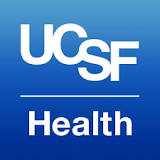Research Study of ATG and Rituximab in Renal Transplantation
| Status: | Terminated |
|---|---|
| Conditions: | Renal Impairment / Chronic Kidney Disease, Hospital |
| Therapuetic Areas: | Nephrology / Urology, Other |
| Healthy: | No |
| Age Range: | 18 - 65 |
| Updated: | 12/1/2018 |
| Start Date: | July 25, 2011 |
| End Date: | August 25, 2017 |
Immunosuppression With Antithymocyte Globulin, Rituximab, Tacrolimus, Mycophenolate Mofetil and Sirolimus, Followed by Withdrawal of Immunosuppression, in Living-donor Renal Transplant Recipients
The purpose of this study is see if a combination of two drugs, (ATG and rituximab), given at
the time of the transplant surgery, will help reduce or eliminate the need for long term
immunosuppressive medication.
the time of the transplant surgery, will help reduce or eliminate the need for long term
immunosuppressive medication.
Kidneys remove excess fluid and waste from the blood. When kidneys lose their filtering
ability, dangerous levels of fluid and waste accumulate in the body — a condition known as
kidney failure. There are two ways to treat kidney failure. One way is to get dialysis
indefinitely. The second way is to get a kidney transplant. A kidney transplant is often the
best treatment for kidney failure. A kidney transplant is a surgical procedure to place a
healthy kidney from a donor into a person whose kidneys no longer function properly. This
study is for people who will receive a kidney transplant from a very well matched, living
blood relative. The immune system is the body's defense system against illness. After
transplant, the immune system will think that the new kidney is a foreign invader and will
try to attack or reject the transplanted kidney. Immunosuppressive drugs protect the
transplanted kidney by suppressing the immune system. People who have kidney transplants must
take immunosuppressive drug for the rest of their lives. If they stop, their immune system
may reject the transplanted kidney. Immunosuppressive drugs make it hard for the body to
fight off infections. In addition, they can cause high blood pressure, kidney damage, plaque
build-up in the blood vessels, high cholesterol, diabetes and bone disease. They may also
make the body more likely to get some types of cancer (mainly cancer of the white blood cells
and/or skin) and other serious side effects.
Because of the side effects of immunosuppressive drugs, an important goal of transplant
research is to allow people to accept their transplanted organ without always having to take
immunosuppressive drugs. This is called tolerance. The RESTARRT study is testing a
combination of two medications, rituximab and anti-thymocyte globulin (ATG), to see if they
can help people reduce or eliminate the need for life-long immunosuppressive medications. ATG
has been used for over 10 years to treat transplant rejection; rituximab is used to treat
rheumatoid arthritis and two types of cancer. ATG works on immune cells called 'T cells' that
are involved in transplant rejection, while rituximab works on a different type of cell
called 'B cells.' Researchers hope that targeting both these cell types at the same time will
help reset the immune system so that it accepts the transplanted kidney.
Frequent visits are required during the first two months of the study. Then, study visits
take place about every 4 weeks, but more often (every 2 weeks) when reducing medication
doses. After two years, participants will be asked to return for check-ups every 3 months.
Study visits may include consultations with the transplant doctors, physical exam, blood
and/or urine samples and kidney biopsies at several times during the study. In all,
participation could last up to 4 years. All study-related medications and tests are provided
at no charge to the patient.
ability, dangerous levels of fluid and waste accumulate in the body — a condition known as
kidney failure. There are two ways to treat kidney failure. One way is to get dialysis
indefinitely. The second way is to get a kidney transplant. A kidney transplant is often the
best treatment for kidney failure. A kidney transplant is a surgical procedure to place a
healthy kidney from a donor into a person whose kidneys no longer function properly. This
study is for people who will receive a kidney transplant from a very well matched, living
blood relative. The immune system is the body's defense system against illness. After
transplant, the immune system will think that the new kidney is a foreign invader and will
try to attack or reject the transplanted kidney. Immunosuppressive drugs protect the
transplanted kidney by suppressing the immune system. People who have kidney transplants must
take immunosuppressive drug for the rest of their lives. If they stop, their immune system
may reject the transplanted kidney. Immunosuppressive drugs make it hard for the body to
fight off infections. In addition, they can cause high blood pressure, kidney damage, plaque
build-up in the blood vessels, high cholesterol, diabetes and bone disease. They may also
make the body more likely to get some types of cancer (mainly cancer of the white blood cells
and/or skin) and other serious side effects.
Because of the side effects of immunosuppressive drugs, an important goal of transplant
research is to allow people to accept their transplanted organ without always having to take
immunosuppressive drugs. This is called tolerance. The RESTARRT study is testing a
combination of two medications, rituximab and anti-thymocyte globulin (ATG), to see if they
can help people reduce or eliminate the need for life-long immunosuppressive medications. ATG
has been used for over 10 years to treat transplant rejection; rituximab is used to treat
rheumatoid arthritis and two types of cancer. ATG works on immune cells called 'T cells' that
are involved in transplant rejection, while rituximab works on a different type of cell
called 'B cells.' Researchers hope that targeting both these cell types at the same time will
help reset the immune system so that it accepts the transplanted kidney.
Frequent visits are required during the first two months of the study. Then, study visits
take place about every 4 weeks, but more often (every 2 weeks) when reducing medication
doses. After two years, participants will be asked to return for check-ups every 3 months.
Study visits may include consultations with the transplant doctors, physical exam, blood
and/or urine samples and kidney biopsies at several times during the study. In all,
participation could last up to 4 years. All study-related medications and tests are provided
at no charge to the patient.
Inclusion Criteria:
- Recipient of a first renal allograft from a single haplotype matched or greater living
related donor who is no older than 65, or a second degree relative with an Human
Leukocyte Antigen(HLA) type that is consistent with a single haplotype match with the
recipient.
- Demonstration of absence of anti-HLA antibodies using solid phase micro particle
technology (by Luminex® phenotype panel or Luminex single antigen bead test) performed
7 days or less prior to the first dose of rituximab, as assessed by local
laboratories.No evidence of anti-HLA antibodies in current or past sera.Negative T‐
and B‐cell crossmatch as determined by flow cytometric assay measured 7 days or less
prior to the first dose of rituximab.
- Single‐organ recipients (kidney only).
- Serologic evidence of prior exposure to Epstein‐Barr virus (EBV).
- For women of childbearing potential: a negative serum or urine pregnancy test with
sensitivity less than 50 mIU/m within 72 hours before the start of study medication.
- Use of FDA‐approved methods of contraception (those with less than a 5% failure rate)
by all participants from the time that study treatment begins until 104 weeks (24
months) after renal transplantation.
- Ability to receive oral medication.
- Ability to understand and provide informed consent.
Exclusion Criteria:
- Recipient of a kidney from a donor who is older than 65 years.
- History of cancer within the last 5 years, except for nonmelanoma skin cell cancers
cured by local resection and cervical carcinoma in situ.
- Women who are breastfeeding.
- Uncontrolled hyperlipidemia (total serum cholesterol more than 300 mg/dL and/or
triglycerides more than 400 mg/dL).
- Platelet count less than 100,000/μL at study entry.
- Seropositivity for HIV‐1, Hepatitis C virus (HCV) (confirmed by HCV PCR), hepatitis B
surface antigen, or Hepatitis B virus (HBV) core antibody (confirmed by HBV PCR).
- Active tuberculosis (TB) within the previous 3 years regardless of treatment history
for TB. Participants with a known positive purified protein derivative (PPD) or
positive Quantiferon assay will not be eligible for the study unless they have
completed treatment for latent TB and have a negative chest x‐ray at the time of
enrollment. PPD testing or Quantiferon testing done within 52 weeks before transplant
is acceptable as long as there is documentation of the results. Prior recipients of a
Bacille Calmette‐Guérin vaccination (BCG) are not exempt.
- Underlying renal disease with a high risk of disease recurrence in the transplanted
kidney, including focal segmental glomerulosclerosis, types I or II
membranoproliferative glomerulonephritis, and hemolytic‐uremic syndrome/thrombotic
thrombocytopenic purpura.
- The presence of any medical condition that the investigator deems incompatible with
participation in the trial.
- Known sensitivity to antithymocyte globulin, rituximab, tacrolimus, sirolimus, MMF, or
corticosteroids.
- Current use of systemic corticosteroids or antibody‐based therapies (e.g., infliximab,
adalimumab, or etanercept).
- Use of any investigational drug within 30 days of transplantation.
- Receipt of a live vaccine within 3 months of enrollment.
We found this trial at
6
sites
University of Wisconsin In achievement and prestige, the University of Wisconsin–Madison has long been recognized...
Click here to add this to my saved trials
Click here to add this to my saved trials
3400 Spruce St
Philadelphia, Pennsylvania 19104
Philadelphia, Pennsylvania 19104
(215) 662-4000

Hospital of the University of Pennsylvania The Hospital of the University of Pennsylvania (HUP) is...
Click here to add this to my saved trials
University of Maryland Medical Center Founded in 1823 as the Baltimore Infirmary, the University of...
Click here to add this to my saved trials
Click here to add this to my saved trials
505 Parnassus Ave
San Francisco, California 94143
San Francisco, California 94143
(415) 476-1000

University of California, San Francisco Medical Center UCSF Medical Center is recognized throughout the world...
Click here to add this to my saved trials


